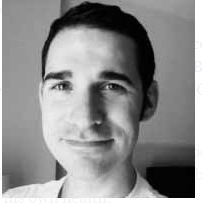Even as the authorities worked to confirm that Mr. Spencer was infected with Ebola, it emerged that he traveled from Manhattan to Brooklyn on the subway on Wednesday night, when he went to a bowling alley, and then took a taxi home.
The next morning, he reported having a temperature of 103 degrees, raising questions about his health while he was out in public.
People infected with Ebola cannot spread the disease until they begin to display symptoms, and it cannot be spread through the air. As people become sicker, the viral load in the body builds, and they become more and more contagious.
Dr. Spencer’s travel history and the timing of the onset of his symptoms led health officials to dispatch disease detectives, who “immediately began to actively trace all of the patient’s contacts to identify anyone who may be at potential risk,” according to a statement released by the department.
It was unclear if the city was trying to find people who might have come into contact with Dr. Spencer on the subway. The Metropolitan Transportation Authority directed all questions to the health department, which did not immediately respond to requests for comment on the issue.
At Dr. Spencer’s apartment in Harlem, his home was sealed off and workers distributed informational fliers about the disease. It was not clear if anyone was being quarantined.
Health authorities declined to say how many people in total might have come into contact with Dr. Spencer while he was symptomatic.
Mayor Bill de Blasio, speaking at a news conference Thursday evening before the diagnosis, said Dr. Spencer has given health workers a detailed accounting of his activities over the last few days.
“Our understanding is that very few people were in direct contact with him,” Mr. de Blasio said.
Dr. Spencer had been working with Doctors Without Borders in Guinea, treating Ebola patients, before returning to New York City on Oct. 14, according to a city official.
He told the authorities that he did not believe the protective gear he wore while working with Ebola patients had been breached but had been monitoring his own health.
Doctors Without Borders, in a statement, said it provides guidelines for its staff members on their return from Ebola assignments, but did not elaborate on those protocols.
“The individual engaged in regular health monitoring and reported this development immediately,” the group said in a statement.
Dr. Spencer began to feel sluggish on Tuesday but did not develop a fever until Thursday morning, he told the authorities. At 11 a.m., the doctor found that he had a 103-degree temperature and alerted the staff of Doctors Without Borders, according to the official.
The staff of Doctors Without Borders called the city’s health department, which in turn called the Fire Department.
Emergency medical workers, wearing full personal protective gear, rushed to Dr. Spencer’s apartment, on West 147th Street. He was transported to Bellevue and arrived shortly after 1 p.m.
[youtube WBH4m1U-0R0#t]










